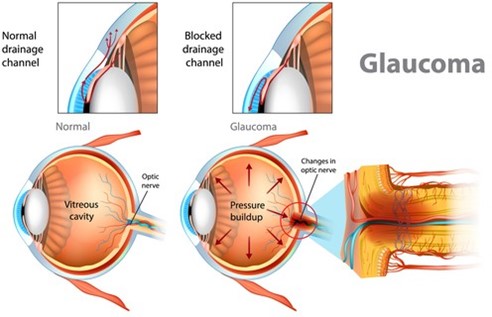A nurse is collecting data from a client who received IV morphine for postoperative pain. The nurse should identify that which of the following findings indicates a therapeutic response to the medication?
The client's blood pressure has been reduced.
The client exhibits diaphoresis
The client is not grimacing
The client has an elevated heart rate
The Correct Answer is C
Answer: (C) The client is not grimacing
Rationale:
A) The client's blood pressure has been reduced:
While morphine can lower blood pressure due to its vasodilatory effects, a reduction in blood pressure is not necessarily a primary indicator of a therapeutic response to pain relief. It is more important to assess pain relief directly through the client's subjective experience and behavior rather than focusing on vital signs alone.
B) The client exhibits diaphoresis:
Diaphoresis, or sweating, can occur as a side effect of morphine administration but does not indicate that the medication is effectively relieving pain. In fact, diaphoresis might signal an adverse reaction or discomfort rather than a therapeutic effect.
C) The client is not grimacing:
The absence of grimacing suggests that the client's pain has decreased, which is a direct indicator of a therapeutic response to morphine. Observing a reduction in pain-related behaviors, such as grimacing, is a key assessment for determining the effectiveness of pain management in postoperative clients.
D) The client has an elevated heart rate:
An elevated heart rate may be a sign of unresolved pain or a side effect of morphine but is not a clear indicator of pain relief. Effective pain management with morphine typically results in a decrease in sympathetic nervous system responses, such as a high heart rate, rather than an increase.
Nursing Test Bank
Naxlex Comprehensive Predictor Exams
Related Questions
Correct Answer is C
Explanation
The charge nurse should remind the newly licensed nurse that the client has a right to refuse medication. It is important for healthcare providers to respect the autonomy and rights of their clients, including the right to refuse treatment.
Option a is incorrect because it may not be appropriate for the family to persuade the client to take medication against their wishes.
Option b is incorrect because delivering medication intramuscularly against the client's wishes would violate their right to refuse treatment.
Option d is incorrect because inquiring about compatible foods with the pharmacy would not address the issue of the client's right to refuse medication.
Correct Answer is A
Explanation
a ."I will take a stool softener to prevent constipation."
Explanation:
The statement that indicates an understanding of the instructions is "I will take a stool softener to prevent constipation."
Explanation for the other options:
b. "I will ask to work the night shift, so I will not be driving in bright sunlight."
This statement is incorrect. The need to work the night shift to avoid bright sunlight does not relate to the discharge instructions for a client postoperative following laser surgery for open-angle glaucoma. The primary focus of discharge teaching for this condition would be related to eye care, medication administration, and follow-up appointments.
c. "I will need to use my eye drops for 1 year."
This statement is incorrect. While eye drops are commonly prescribed for open-angle glaucoma, the duration of their use can vary based on the individual's condition and the healthcare provider's instructions. The client should follow the specific instructions given by their healthcare provider regarding the frequency and duration of eye drop use.
d. "I will need to follow a low-protein diet."
This statement is incorrect. A low-protein diet is not typically part of the discharge instructions for a client postoperative following laser surgery for open-angle glaucoma. The focus of dietary recommendations for open-angle glaucoma is on maintaining a healthy diet and managing other health conditions that may affect intraocular pressure, such as high blood pressure or diabetes.
In summary, the statement that demonstrates an understanding of the discharge instructions for a client postoperative following laser surgery for open-angle glaucoma is "I will take a stool softener to prevent constipation." This indicates the client's awareness of the importance of preventing constipation, which can be a side effect of some medications prescribed after surgery.

Whether you are a student looking to ace your exams or a practicing nurse seeking to enhance your expertise , our nursing education contents will empower you with the confidence and competence to make a difference in the lives of patients and become a respected leader in the healthcare field.
Visit Naxlex, invest in your future and unlock endless possibilities with our unparalleled nursing education contents today
Report Wrong Answer on the Current Question
Do you disagree with the answer? If yes, what is your expected answer? Explain.
Kindly be descriptive with the issue you are facing.
